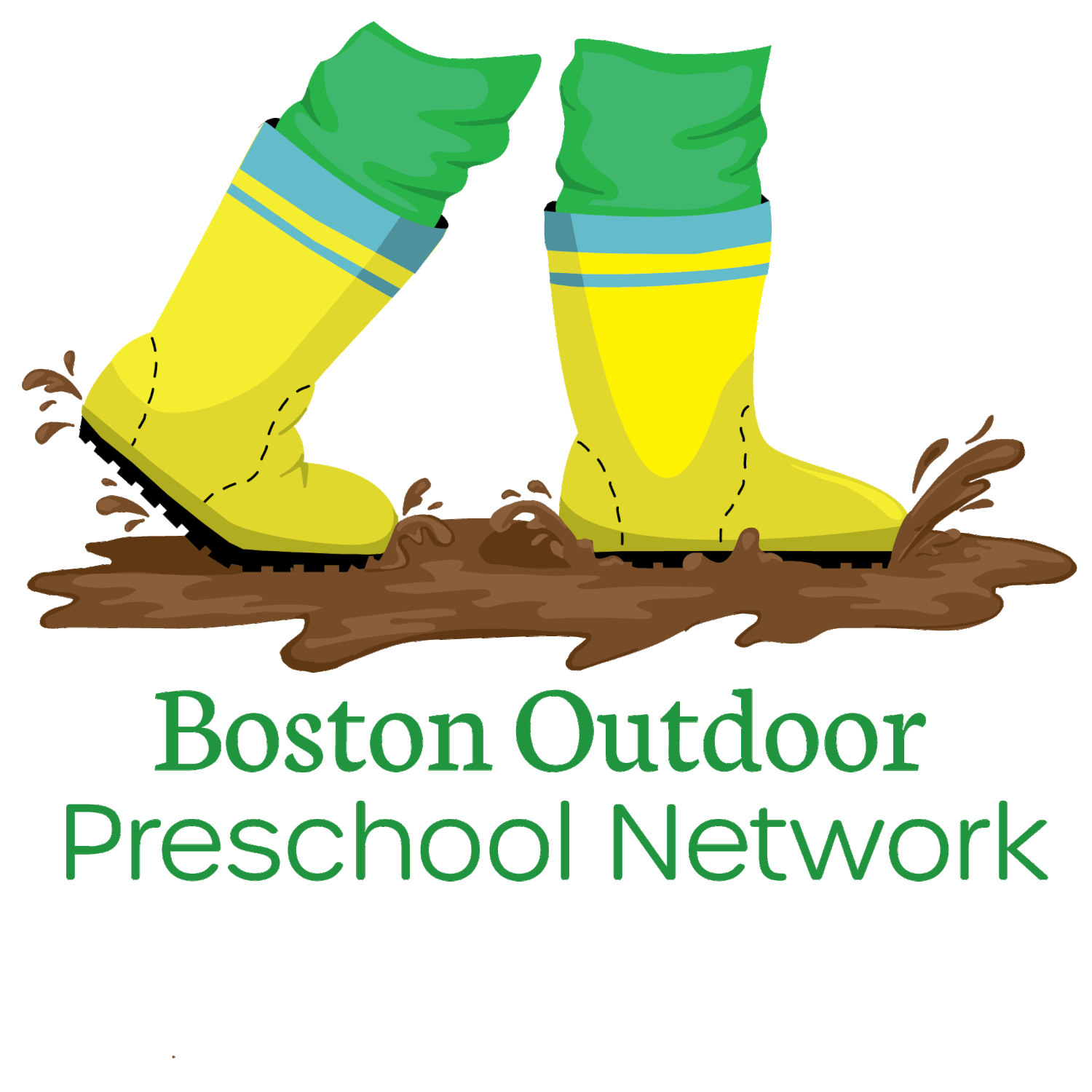Get to Know BOPN
Our mission is to meet the developmental needs of the whole child
while fostering lifelong relationships with the natural world.
BOPN’s Beginnings
BOPN arose from our founders’ shared desire to offer young learners a joyfully muddy childhood—fostering curiosity, movement, music, art, science, and connection with nature and one another.
As public school educators, they saw that preschool children felt most alive when engaging with the natural world and their local community. And so began the mission of expanding opportunities for nature-based education, and creating equitable access to those programs.
BOPN welcomed the first class of 12 children to the Arnold Arboretum in September 2019.
Since that time, we have expanded throughout eastern MA, launched Forest Days in partnership with local public schools, and opened Boston’s first nature-based tuition-free program through Boston Pre-K at the Franklin Park Zoo.
During the 2024 - 25 school year, BOPN served 612 children and their families.
The BOPN community welcomes children and families of all backgrounds, and their support fuels our continued growth. We are grateful, and recognize that YOU are what makes BOPN special.
Explore our Curriculum
BOPN combines early childhood and environmental education. Our approach to teaching is inspired by multiple sources, including Lens on Outdoor Learning and the NAAEE Guidelines for Excellence in Early Childhood Environmental Education Programs. Both sets of standards emphasize child-directed learning, authentic experiences, connecting to previous experience, and culturally appropriate practice.
“It is amazing to be at the Aboretum and outside everyday, and the teachers are top notch educators. The program is immensely well-run and every person from management to interns really care about the children, and their hearts are in the right spot. We couldn’t recommend BOPN enough!”
— Ken S.
“BOPN's outdoor leaders are highly trained and experienced to offer this essential program to families in Boston. Nature offers a much more comprehensive learning experience for children, and BOPN is leading the way!”
— Susan C.
Why BOPN?
-

Inclusive
BOPN is a 501c3 nonprofit organization, founded in 2019. Our focus is hands-on outdoor education and environmental stewardship.
BOPN is committed to expanding access to outdoor education by offering financial aid for our tuition-based programs, bringing nature-based education to Boston public schools, and opening Boston’s first free nature preschool at the zoo.
-

Innovative
Co-Founders Sarah Besse & Shela Sinelien were recognized with the Boston University Young Alumni Award for their work to create innovative early education opportunities.
BOPN offers year-round nature immersive programming. We play and learn outdoors every day, rain or shine!
-

Benefits
Play-based learning is critical to children’s healthy development.
A growing body of research has found myriad positive impacts from frequent play in natural settings. These cover the entire range of holistic child development: physical, social, emotional, intellectual, creative and spiritual.
-

Expertise
BOPN was founded by a diverse team of Masters-level female educators who envisioned play-based and nature-based programming for young children. BOPN co-founders bring experience in public schools, private schools, Montessori education, special education, and nature immersion.
BOPN is managed by a team of administrators, many of whom are also BOPN co-Founders, BOPN teachers, and/or parents of BOPN children.
The Importance of Play-Based Learning
Research has shown that play-based learning has a positive impact on children's cognitive, social, emotional and physical development. Children learn problem-solving skills and how to work with others in a collaborative environment. They also develop creative thinking, imagination, and communication skills in addition to building self-esteem and confidence.
In a play-based learning environment, children are encouraged to take an active role in their learning. They have the freedom to choose and make decisions, which promotes independence and self-reliance.

Benefits of Nature School
A growing body of research shows myriad positive impacts stemming from frequent play in natural settings. These cover the full range of holistic child development focus-points: physical, social, emotional, intellectual, creative and spiritual.
Positive Impacts Include:
Supporting development in multiple domains
Connecting with nature helps your child develop socially, intellectually, emotionally, spiritually, and physically. (Kellert, 2005).
Supporting creativity and problem solving skills
Children who play outside have more active imaginations are are more likely to be able to solve a complex problem than peers who spend most of their time inside. (Kellert, 2005)
Enhancing concentration and lessening ADD-like behaviors
Daily exposure to nature increases a child's ability to focus, enhances their cognitive ability, and significantly lessens symptoms of ADD in children as young as five (Kuo and Taylor, 2004)
Improving academic performance
Schools that use outdoor classrooms and other forms of nature-based education show significant student gains in social studies, science, language arts, and math. (American Institutes for Research, 2005).
Improving social relations
When children are free to explore and engage in unstructured play outdoors (both by themselves and with others), they are smarter and better able to get along with others. (Burdette and Whitaker, 2005).
Reducing stress
Green plants and vegetation reduce stress among highly stressed children. Locations with greater number of plants, greener views, and access to natural play areas show more significant results (Wells and Evans, 2003).
Improving eyesight
More time spent outdoors is related to reduced rates of nearsightedness, also known as myopia, in children and adolescents (American Academy of Ophthalmology, 2011).
(Thanks to Grow, Bloom and Thrive in Millis, MA and to Crunchy Baby Farm for sharing these resources.)


